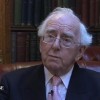
I am old enough to be called “one of the pioneers of palliative care” but serious amnesia has not yet set in (so far as I remember)! I can recall much from those pioneering days, including the hours spent trying to devise comprehensive definitions so that, as we told each other “people will come to know what we do and how and why we do it.”
The challenge, for anyone who has not drafted definitions, is to know how much detail is needed, how the definitions will be used and by whom and perhaps most important of all, why the definitions are needed at all. All those questions were relatively easy to answer when a group of us, representing the Association for Palliative Medicine (APM), negotiated with the Royal College of Physicians for palliative medicine to be recognised as a sub-specialty of Medicine. It was twenty years since St Christopher’s had opened in London, we had a representative professional body in the APM, regional groups of palliative care physicians, a scientific journal and were already planning an Oxford textbook. No, it was the earlier years that were so challenging and so much in need of definitions or so we thought until we in the UK found ourselves sharing our missionary-like zeal with colleagues worldwide. The definitions bug struck again. Just look at what the WHO and most national palliative care bodies produced.
Nothing I shall say here on Definitions and Discoveries should be read as a moan of disappointment or regret. Every day was filled with excitement – “intractable pain” relieved, appetite restored, confusion lessened, fears faced up to, faith taking on a new meaning, relatives reconciled and often reunited.
One discovery which startled us, was the taboo surrounding death – and the language and euphemisms associated with it. NHS England operated units that were to all intents and purposes palliative care units but called “Continuing Care Units”. Doctors told us the last thing they would ever do was use words like Death, Dying, Terminal – with either patient or relatives. “It will horrify them and take away all hope”. One study showed that just over 80% of GPs said they never told a patient how serious was their illness, but over 80% of those same doctors said that when their time came they would want to /expect to be told everything! Most doctors we spoke to (in general practice and hospital medicine) felt sure that most patients did not know they had a terminal illness and would not wish to be disillusioned. Death was always spoken of as “passing away”, “passing on”, “at peace at last” or “a blessed release.” Patients were denied the benefits of palliative care because “They have no idea how ill they are” or “ Seeing you will upset them and they will lose all hope!” We used to say that palliative care was holistic care – physical, emotional, social and spiritual – but I was unprepared for a GP to sit staring at me when I talked to a patient he had asked me to visit – “just wondering how you pray” – he explained!
Personally I had never met doctors so confident about their care and their professional knowledge base even when it was wrong! “I’ve never had any complaints about my care of patients at the end. I know how morphine leads to drug addiction so I never use it except to render them unconscious at the end.”
“We don’t need a hospice here – they get excellent care in my unit” said a surgeon who explained that he left “all that holding hands stuff” to his junior doctors ( “housemen in their first year after qualifying”). It was shortly after that I received a handwritten letter from a medical student on behalf of himself and 75 others asking if they could visit the hospice where I worked because “we receive no training whatsoever in terminal care.” The Dean of Medicine immediately had it inserted into the curriculum for each clinical year.
Discoveries related to professional training and education never ceased to surprise us. Our amazement at how little doctors and nurses had been taught soon changed to surprise and delight when studies showed that they were in fact eager to be trained, eager to learn new skills, with GPs more than consultants asking for special courses on pain and symptom control but more consultants than GPs asking for help with spiritual matters and bereavement.
However the biggest “discovery” of the early days was when a fellow definition-writer, said “ I’ve just realised that palliative care is no more, no less, than traditional good care whatever the pathology, whatever the colour, creed, means, class, language or gender of the sufferer, or where they live. No-one can deny a patient of such care, whatever the excuses. The principles are surely integral features of all care, whether palliative or not”.
We were left wondering why principles at the very heart of all good care had to be restated, redescribed, even redefined. Where and why had things gone wrong? That will need another piece on this blog.
Derek Doyle was the founding President of the Association of Palliative Medicine of Great Britain and Ireland and the first consultant specialist in Palliative Medicine in Scotland. He established and was senior editor of the Oxford Textbook of Palliative Medicine and was the first Vice Chairman of the European Association for Palliative Care and first Chair of the European Committee for medical education and training in palliative care. He was a founding member of the International Association of Hospice and Palliative Care, an organisation with a global reach in promoting better care at the end of life. Closer to home Derek was Vice-Chairman of the National Council for Hospice and Specialist Palliative Care and remains the Honorary President of the Scottish Partnership for Palliative Care, to which he continues to commit his energies and support.

